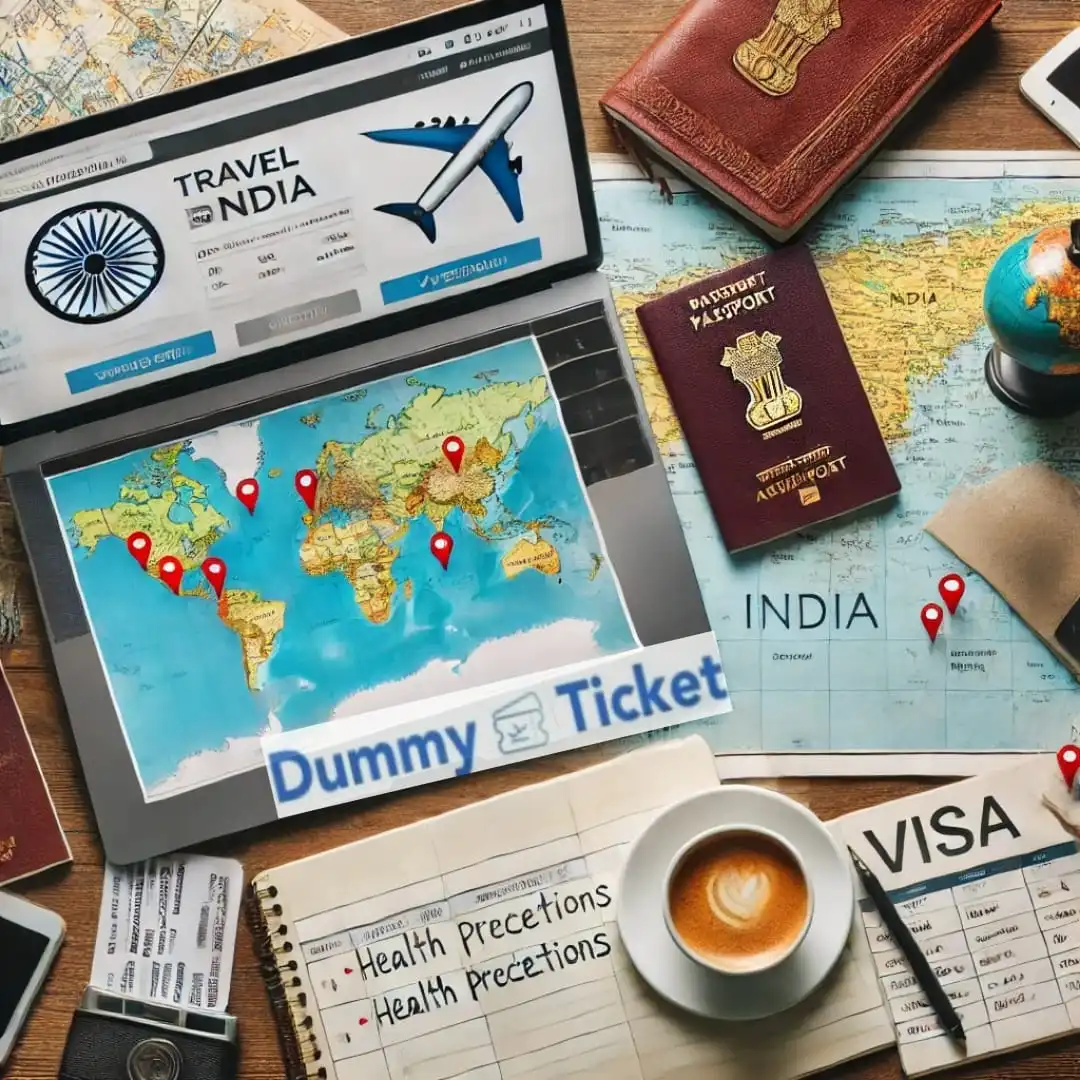Residency in the United States of America
Staying in the United States and acquiring U.S. citizenship is a dream for many, and there are multiple paths to secure lawful residency in the U.S., eventually leading to citizenship. Here are some common methods to achieve this goal:
- Residence Through Employment:
- H-1B Visa: Granted to skilled professionals with high qualifications. Applications are submitted by a U.S. employer who wishes to hire you.
- Green Card through Employment: Certain categories can apply directly for a Green Card after several years of legal work in the U.S.
- Residence Through Marriage:
Marrying a U.S. citizen or a permanent resident is one of the fastest ways to obtain residency. After applying for a Green Card, residents can apply for citizenship after three years of marriage and continuous residency. - Diversity Visa (DV) Lottery Program:
The DV Lottery is one of the simpler ways to gain U.S. residency, where applicants are chosen randomly each year. If selected, you get a Green Card, and after five years, you can apply for citizenship. - Asylum:
Individuals facing persecution in their home countries can apply for asylum upon entry to the U.S. If the application is approved, they receive permanent residency, and after five years, they can apply for citizenship. - Residence Through Investment (EB-5):
Individuals with substantial capital can apply for an EB-5 investment visa by investing a significant amount (usually between $900,000 - $1,800,000) in a U.S. project that creates jobs for local workers. - Family-Based Residency:
U.S. citizens and permanent residents can sponsor family members for residency. Immediate relatives (spouses, children, parents, and siblings) are prioritized, although extended relatives might wait several years. - Residence Through Study (F-1 Visa):
While a student visa does not provide permanent residency, some students can transition to work residency if they secure a job and sponsorship from an employer. After working for a few years on a work visa, employees can apply for a Green Card.
- Each type of residency involves specific legal procedures, and a specialized immigration attorney may be necessary to ensure correct application processes.
- Becoming a U.S. Citizen: Once you receive your Green Card and have resided in the U.S. for five years (or three years if married to a U.S. citizen), you may apply for U.S. citizenship. The process includes English language tests, general knowledge of the U.S., and proof of good character.
Benefits of U.S. Citizenship:
- The right to vote and participate in political life.
- Freedom to travel globally without restrictions.
- Eligibility for government jobs.
- Full legal protection as a U.S. citizen.
Requirements for U.S. Citizenship:
After obtaining a Green Card, a lawful resident must live in the U.S. for a set time before applying for citizenship. The duration varies by case:
- Regular Residency:
If you received a Green Card through employment, the DV Lottery, or family (excluding spouse), you must wait at least five years before becoming eligible for citizenship. - Residency through Marriage to a U.S. Citizen:
If you married a U.S. citizen and obtained a Green Card, you can apply after three years of residency, provided the marriage is ongoing and the spouse remains a U.S. citizen during this time. - Additional Requirements:
During the required residency period (either three or five years), you must primarily reside in the U.S. without extended absences, maintain good character, and pass English language and U.S. knowledge tests.
Advantages of Living in the U.S.:
- Job Opportunities and Professional Development:
- The U.S. has one of the largest global markets, offering vast career opportunities with competitive wages and growth potential.
- Education:
The U.S. boasts a strong educational system with many world-renowned universities, like Harvard and MIT. Permanent residents can access free or reduced-cost public school education. - Healthcare Services:
Despite high costs, the U.S. has advanced hospitals and medical facilities that provide excellent healthcare. - 4. Personal Freedoms:
The U.S. constitution guarantees freedoms of expression, belief, and basic civil rights, creating a safe environment for individuals to live and express their views. - Stability and Security:
Overall, the U.S. offers a high level of safety, political stability, and strong laws protecting individual rights. - Cultural Diversity:
The U.S. is a multicultural society, where people from various backgrounds live together, providing a chance to learn about diverse cultures.
Challenges of Living in the U.S.:
High Costs of Living:
Living costs are high, especially in major cities like New York, Los Angeles, and San Francisco, encompassing housing, education, and healthcare.
Healthcare System:
While of high quality, U.S. healthcare is costly, requiring residents to have comprehensive insurance.
High Taxes:
U.S. residents are subject to multiple taxes, including federal income and local taxes, reducing net disposable income.
Fast-Paced Lifestyle:
Some may find the U.S. lifestyle demanding, with long working hours and high expectations for success.
Complex Legal Procedures:
Immigration laws are complicated and require intensive legal and administrative steps to renew residency or acquire citizenship.
Social Inequality:
Income and living condition disparities can be noticeable, affecting the quality of services in different areas.
Basic Requirements to Travel to the U.S.:
1. Obtaining a Visa:
- Tourist or Business Visa (B1/B2): For short visits for tourism or business. Requires application, scheduling an interview, and paying visa fees.
- Student Visa (F-1): Requires acceptance from a U.S. educational institution, followed by a student visa application.
- Work Visa: Requires a job offer from a U.S. company and a work visa application, like the H-1B for skilled workers.
2. Required Documentation for Visa Applications:
- Valid passport.
- Completing the DS-160 form online and paying fees.
- Recent photograph meeting embassy standards.
- Financial proof showing ability to cover travel and living expenses.
- Documents proving intent to return home, like job or property.
3. Personal Interview:
- Attending an interview at the U.S. embassy.
- Responding to questions about the trip, plans, and ties to the home country.
4. Electronic Travel Authorization (ESTA) for Eligible Citizens:
Citizens from qualifying countries may travel for up to 90 days without a visa under the Visa Waiver Program, provided they register through ESTA.
5. Entry Procedures:
Upon arriving in the United States, you will go through immigration and customs procedures. It is important to be prepared to present any additional documents requested by the officer, such as hotel reservation details or a return ticket.
6. Health Insurance:
It is advisable to obtain travel health insurance, as healthcare in the United States is expensive. Always check the website of the U.S. embassy in your country for the latest information and guidelines, as requirements may vary based on your country of residence or the type of visa required.
Obtaining a U.S. Passport
Acquiring a U.S. passport requires first obtaining U.S. citizenship, which can be achieved through several main pathways. However, it typically requires several years of legal procedures and compliance with certain conditions. Here are some common methods:
- Birth in the United States:
If you are born in the U.S., you automatically receive U.S. citizenship under the law of citizenship. - Marriage to a U.S. Citizen:
If you are married to a U.S. citizen, you can apply for permanent residency (a green card), and after three years, you can apply for U.S. citizenship. - Long-term Residency and Employment:
You can obtain permanent residency (a green card) through working in the U.S. under a long-term work visa (like the H-1B visa). After residing for five years, you can apply for U.S. citizenship. - Asylum or Humanitarian Protection:
If you have valid reasons for seeking asylum, such as persecution based on race, religion, or politics, you can obtain permanent residency and then apply for citizenship after several years. - Diversity Visa Lottery Program:
This program allows individuals from certain countries to apply for permanent residency through a lottery, and then apply for citizenship after meeting residency requirements.
Obtaining U.S. citizenship requires time, patience, and meeting specific conditions. Once you become a citizen, you can apply for a U.S. passport.
Top 10 Tips Before Traveling to America
Here are some important tips for anyone planning to travel and reside in the United States, whether for study, work, or long-term residency:
- Learn English:
Mastering the English language is essential for facilitating your daily life and communicating with others. It will be helpful when applying for jobs or studies, as well as for dealing with official procedures or emergencies. - Good Financial Planning:
The cost of living in the United States is high, especially in large cities. Make sure to set a budget to cover rent, food, transportation, and healthcare. Try to save a financial cushion for emergencies and avoid relying entirely on credit cards to prevent high debt. - Find Suitable Health Insurance:
Healthcare in the U.S. is very expensive. Ensure you have health insurance that covers emergencies and routine visits. There are various types of insurance depending on your needs and financial situation. - Familiarize Yourself with U.S. Laws and Customs:
Learn about the local laws in the state you will be living in, as laws may vary from state to state. There are also social customs to respect, such as the importance of privacy and order, and avoiding discussions about personal matters with strangers. - Join the Community:
Building a social network is important. Look for community activities or groups that bring together people from your home country or shared interests. This will help you acclimate and feel comfortable. You can also reach out to local organizations, such as nonprofits that provide support to immigrants and newcomers. - Ensure You Build a Good Credit History:
Your credit history in America affects your chances of obtaining housing or loans, and even some jobs. Open a bank account and start building credit by managing a small credit card regularly and paying bills on time. - Adhere to Visa Conditions:
Make sure you understand your residency terms and visa validity. Following the law helps you avoid legal issues or deportation. If you plan to stay longer, ensure you apply for an extension of stay or switch to another type of visa before your current visa expires. - Pay Attention to Safety and Security:
Although America is generally safe, avoid dangerous areas, especially at night. Make sure to take security precautions and know emergency numbers. - Dealing with Discrimination:
Occasionally, you may face discrimination or cultural challenges. Do not hesitate to seek out organizations that provide legal or social support for immigrants. - Set Goals and Build Future Plans:
Try to have a clear plan for your future in the U.S., whether it focuses on education, work, or long-term residency.
Good and profitable income
Working in America attracts many people due to the multitude of opportunities and economic diversity. There are key fields that offer good job opportunities and lucrative income, such as:
- Technology: Companies like Google, Apple, and Microsoft offer high salaries and opportunities for growth and development. Many immigrants work in technical jobs like programming and data analysis.
- Healthcare: This is one of the most in-demand fields, especially with the growing population and aging demographics. Doctors, nurses, and researchers in this field receive excellent salaries and health insurance.
- Engineering: Whether in civil, electrical, or mechanical engineering, construction, energy, and technology companies need specialized engineers. Engineers earn good wages with advancement opportunities.
- Financial Services: Banks and financial institutions in New York and San Francisco are among the largest employers, offering jobs in investment management, accounting, and financial analysis.
- E-commerce and Logistics: Companies like Amazon and FedEx are always looking for employees. Jobs range from operations management to delivery services.
- Education: Teachers, faculty members, and researchers at universities can secure good job opportunities, especially if they have experience and advanced degrees.
Moving to work in America requires legal procedures, including obtaining a work visa, and sometimes you need specific qualifications or certifications to work in certain fields.




